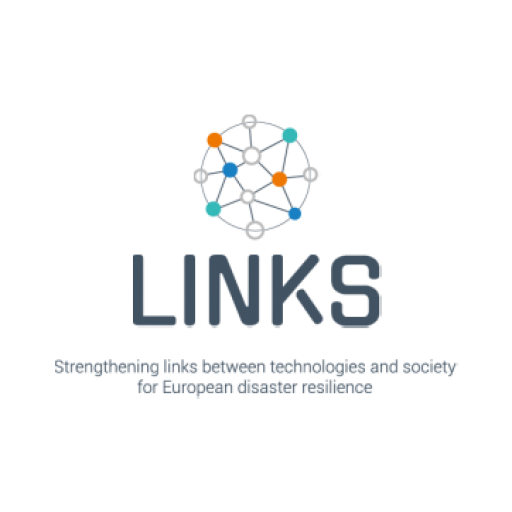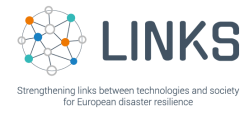
In recent years, strengthening the impact of the research projects funded under the Horizon 2020 and Horizon Europe Programs has become a major focus for the Commission. Awarded projects are often those which can demonstrate, even at the proposal stage, how their exploitation activities will ensure the effective and long-term use and impact of the project results. Projects Consortia are expected to define and implement concrete exploitation strategies, which identify measures to achieve positive societal, commercial, and scientific impacts of the results. In this area, the role of communication and dissemination activities to support the impacts of results has also become more important. Communication activities aim to inform different audiences about the project and its results, dissemination is done to make results available for relevant audiences to use, and exploitation involves implementing steps to ensure the concrete use and impact of the results.
To support projects in these efforts, the European Commission launched the Horizon Results Booster initiative. The Booster initiative has the objective to provide projects with “expert, free of charge, support services to boost the exploitation potential of research results, disseminate effectively, and go to market”. This is done under three core services including:
- Service 1: Portfolio Dissemination & Exploitation Strategy
- Service 2: Tailor made support services to develop a business plan
- Service 3: Assistance, coaching and mentoring for go-to-market activities
The LINKS project aims to identify and combine knowledge and tools for applying social media and crowdsourcing in disasters, into useful products for the Disaster Risk Management community. The products are accessible through LINKS Community Center, an interactive online platform. In the second year of the project, LINKS saw an opportunity to utilize two modules under Service 1 of the Booster, to strengthen the projects exploitation strategy for the products and for other key exploitable results (KER).
The first Module (A) is designed to identify and create a portfolio of KER among a grouping of similar projects. As a Research and Innovation action under the Disaster Resilient Societies (DRS01) call, LINKS is involved in a clustering or projects under the same (or related) call, including the projects RESILOC, RISKPacc, CORE, BuildERS, ENGAGE, and most recently PARATUS and MEDiate. The “Societal Resilience Cluster” was tasked to identify commonalities among the different projects in terms of the KER, areas of research, and targeted stakeholders. Based on the inputs provided by the individual projects, the experts from the Booster service identified a list of collective results, classified by typology. The results were discussed during an online seminar involving the Booster experts, the project coordinators, and project exploitation leaders. The discussion covered common challenges and strengths provided in the final portfolio of results, and the mapping of potentially common stakeholders/networks that can be used by the Cluster. All these contents were captured in a single report prepared by the Booster experts. The experience was of added value to the projects for several reasons. On the one hand the projects learned more about each projects objectives and results, and on the other the exercise created new opportunities among the projects for joint dissemination and exploitation activities and for the potential linking of similar results. Indeed, discussions are not underway by projects on linking certain project results, for instance related ethics frameworks, approaches for engaging vulnerable groups and for building local resilience teams, and joint policy recommendations.
The second Booster Module (B) intends to help projects to design a joint dissemination plan for the identified portfolio of joint KERs. In the LINKS experience, this module helped the “Societal Resilience Cluster” to define a shared visual identity for the group and to create dissemination materials (a leaflet and a short video describing the project results).
The third Module (C) intends to improve the existing exploitation strategy of an individual project, by conducting an exercise on the two or more “mature” KER. For LINKS, the project was asked to reflect on how to improve the exploitation strategy of two products: a Social Media and Crowdsourcing Technologies Library, and an Including Citizens Handbook. This required filling out a canvas focused on specific aspects of exploitation including:
- the characterization table, focusing on the needs the result wants to address, its value proposition, and the analysis of the target group;
- the exploitation roadmap, focusing on the actions to carry out in the 3-6 months after the end of the project, the role of the partners, the milestones, the costs and revenues, and the expected impacts in 3-year;
- the risk matrix, focusing on the possible risks for the exploitation of the project in terms of partnership, market, IPR, environment, etc.
Based on the data provided by the LINKS Consortium, the Booster experts provided detailed feedback in a report and a one-day seminar with the project. The objective of the seminar was to work through, in a collaborative way, the aspects which remained unclear in the information provided by the Consortium, and to explore new ideas for the project’s exploitation strategy. The content from the seminar was also based on a report from the Booster experts, which also contained the updated exploitation strategies for the two KER, and indications from the experts on how to apply the strategy to other project results. This represents the main strength of this experience, along with the possibility to co-design the exploitation plan for the two KER together with the experts.
Lastly, the Booster service has assisted with the establishment of joined policy brief among the SRC projects, which is due to be published in December 2023. Overall, the experience with the Booster has been a positive one for LINKS and the SRC and has helped the projects refine the exploitation strategy and increase the impact which the results are already having on the project’s target groups.

